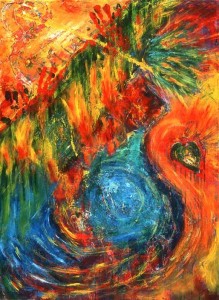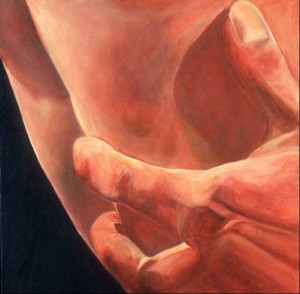 Many religions are uncomfortable at best, and sometimes terrified by erotic energy. And perhaps they should be. Erotic energy can be effectively channeled only with the full cooperation of the individual and not by external influences. Even so, many religions have overlaid erotic energy with dire warnings, negative connotations, and even threats of sin and damnation if it were used “improperly.” Yet it remains the life-force within each of us.
Many religions are uncomfortable at best, and sometimes terrified by erotic energy. And perhaps they should be. Erotic energy can be effectively channeled only with the full cooperation of the individual and not by external influences. Even so, many religions have overlaid erotic energy with dire warnings, negative connotations, and even threats of sin and damnation if it were used “improperly.” Yet it remains the life-force within each of us.
Eros is the Greek god of love and is depicted in mythology as being arbitrary, powerful and seductive. Yet erotic energy goes beyond love and sex. The best way of imagining the scope of erotic energy is in the springtime, when the earth comes alive and buds forth flowers and fruit. It’s all about fecundity, fructification, and productivity across the spectrum of the cosmos including the human mind and heart. Erotic energy is at the heart of philosophy, theology, medicine, the arts and the sciences, both at the macro and micro levels.
Eros can lead us to transcend our limited capacities and touch the infinite. It is paradoxical that religions can be so mistrustful of it. A famous depiction of erotic energy in the Christian soul is Bernini’s marble statue of the great mystic and Doctor of the Church, St. Teresa of Avila. He shows her in spiritual ecstasy and depicts her face glowing as if in erotic sexual climax.
The dualism between flesh and the spirit rooted in Manichaeism has had a lot to do with the uncomfortable relationship between religion and erotic energy. On one hand religions have endorsed it as indispensible to continuing the human race. On the other hand it has looked askance at any attempt to express eroticism outside of the marriage bed. But erotic energy goes far beyond reproduction. It is the source of our humanity and without it our souls are impoverished; we would be empty shells lacking the intuitive, empathic, and emotional forces that make us like God.
There are plenty of examples of religious figures other than St. Teresa who, while remaining celibate have channeled their erotic energy into meditation, art, prayer, ritual and service. But the drive from eros toward sexual communication is nonetheless compelling, and for most of us needs appropriate opportunities for healthy expression. The challenge for each of us is that it not devolve into mere eroticism, but elevates the individual spiritually into a transcendent connection with the Other.
 Conflict arises when external influences take it upon themselves to curtail possible channels for healthy erotic expression. Many may see this in the blanket requirement of celibacy imposed on Catholic parish priests many centuries after the founding of the church. This is practically the only such life-long requirement by a religion (aside from Shakers) that is applied to non-monk clerics. Is it therefore possible that many ordained men are paying a serious emotional and spiritual price if they are denied the transcendence that might come from sexually expressed erotic energy? If so, what responsibility do such religions have to embrace more fully the transcendent potential in erotic energy for all its members?
Conflict arises when external influences take it upon themselves to curtail possible channels for healthy erotic expression. Many may see this in the blanket requirement of celibacy imposed on Catholic parish priests many centuries after the founding of the church. This is practically the only such life-long requirement by a religion (aside from Shakers) that is applied to non-monk clerics. Is it therefore possible that many ordained men are paying a serious emotional and spiritual price if they are denied the transcendence that might come from sexually expressed erotic energy? If so, what responsibility do such religions have to embrace more fully the transcendent potential in erotic energy for all its members?
A number of issues come to mind:
–the need for religions to allow their sexual ethics to evolve
–the value of permanent and life-long promises of celibacy
–the acceptance of divorce and the option to remarry
–the blessing of partnerships as a step toward long term commitments
–the option for all the ordained to be married and for the married to be ordained
–the acceptance of female clergy and the erotic energy they can bring to ministerial priesthood
–the acceptance of homosexual love and commitment both lay and clergy
Is any of this relevant to you? What is your experience of erotic energy that has opened your life to new possibilities and a closer relationship with your higher power? How does your spirituality connect with your erotic energy?
Next: Getting in touch with the real Jesus
All art in this post is copyrighted by the artist, Michael Monti Parise
